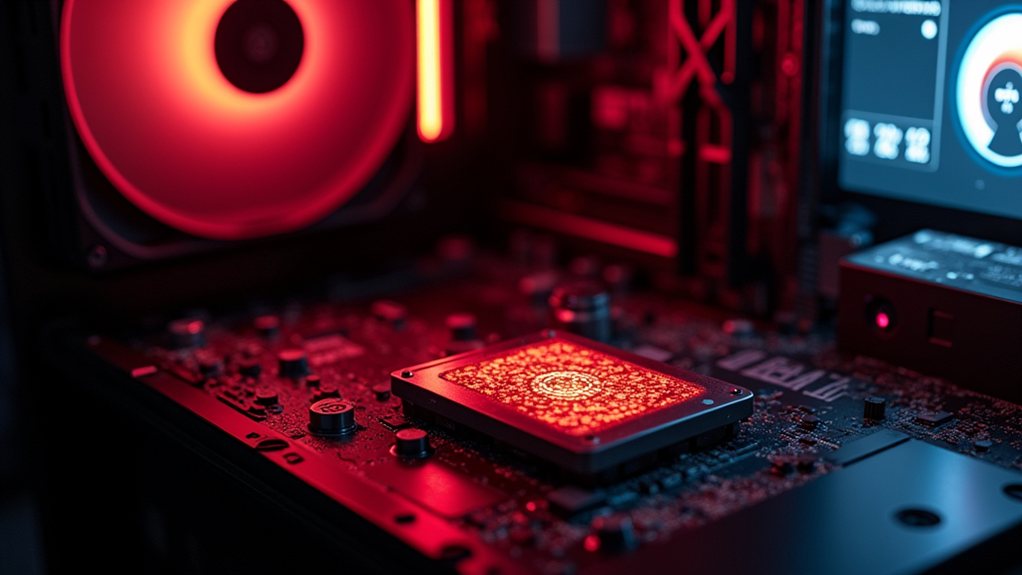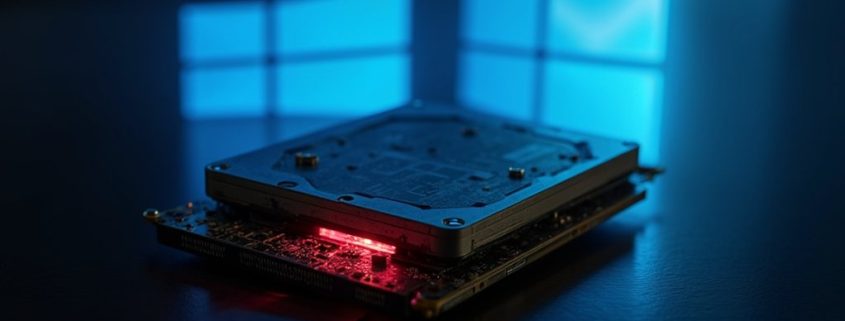Is Windows 11 Quietly Accelerating SSD Failures? The Hidden Risks Revealed
Recent SSD failures affecting Windows 11 users have been traced to pre-release engineering firmware on Phison-controlled drives, not the OS itself. The issues primarily impact drives operating at 60% capacity during large file transfers exceeding 50GB. As Microsoft denies direct links to update KB5063878, experts emphasize the critical importance of maintaining current official firmware and thorough backups. The deeper story reveals concerning vulnerabilities in modern storage systems.

A troubling wave of SSD failures has hit Windows 11 users following the August 2025 update KB5063878, with investigations pointing to pre-release engineering firmware on certain Phison-controlled drives as the culprit. The issue came to light when a Chinese Facebook PC DIY group first identified the connection between the Windows update and drive failures, particularly affecting models like the WD SN770 and other Phison-controlled SSDs. The group’s findings were quickly verified by engineers at Phison, lending credibility to the investigation.
Think your SSD is immune? Not so fast. The plot thickens when we look at the specific conditions triggering these digital meltdowns. Users report their drives pulling disappearing acts worthy of a Vegas magic show, particularly during hefty file transfers exceeding 50GB. The drama intensifies when SSDs are running at 60% capacity or higher, turning routine data transfers into nail-biting adventures in data roulette. A comprehensive data backup is strongly recommended before attempting any firmware updates to protect against potential complications.
Microsoft and Phison have both taken defensive stances, with Microsoft finding no smoking gun linking KB5063878 to the reported failures after extensive testing. Phison’s 4,500-hour testing marathon yielded similar results, but here’s the kicker: their tests focused on retail drives with production firmware, whereas the actual culprit appears to be pre-release engineering firmware that shouldn’t have found its way onto consumer hardware in the first place.
The situation has created a perfect storm for affected users, particularly in Japan and across global tech forums. Adding insult to injury, some recovery tools on both Windows 11 and Windows 10 reportedly broke under these 2025 security updates, leaving users with limited options for data recovery. It’s like showing up to a fire with a broken water hose.
Thermal issues have emerged as a contributing factor, with inadequate cooling and missing heatsinks playing supporting roles in this technological drama. The relationship between SSD controller software and OS-level security patches has proven more complex than a Christopher Nolan plot, highlighting the crucial importance of running current, official firmware.
For users caught in this digital crossfire, the path forward is clear: check your firmware version and update to the latest official release if needed. Phison’s stern warnings about unofficial controller failure documents and threats of legal action against leaks suggest there’s more to this story than meets the eye.
Although the company maintains that engineering firmware is the root cause, the incident serves as a stark reminder that even in 2025, the intersection of hardware and software updates remains a potential minefield for users and manufacturers alike.
As this situation continues to unfold, one thing becomes crystal clear: the days of treating SSD firmware updates as optional maintenance are over. In an era where data is king, ensuring your drive runs official, up-to-date firmware isn’t just good practice – it’s critical survival gear for the digital age.
Final Thoughts
While concerns about Windows 11 potentially affecting SSD longevity are valid, current evidence suggests that the issue is limited to a small number of users. Microsoft’s ongoing investigation and commitment to fixes demonstrate their seriousness about the matter. In the meantime, users should monitor their SSD health with built-in tools and keep their systems updated. This situation underscores the importance of balancing performance optimization with hardware preservation.
If you’re experiencing issues with your SSD or need assistance in monitoring its health, PC Repairs Ipswich is here to help. Don’t hesitate to reach out to us for support. Click on our contact us page to get in touch today!












